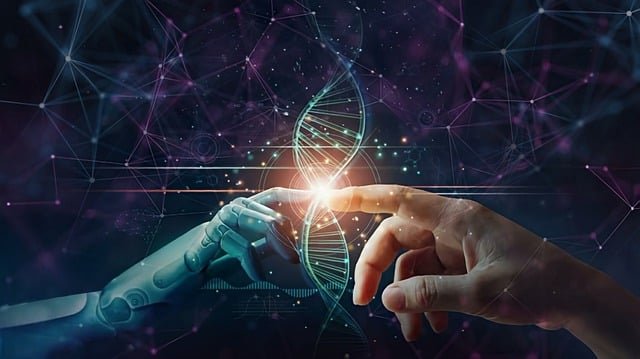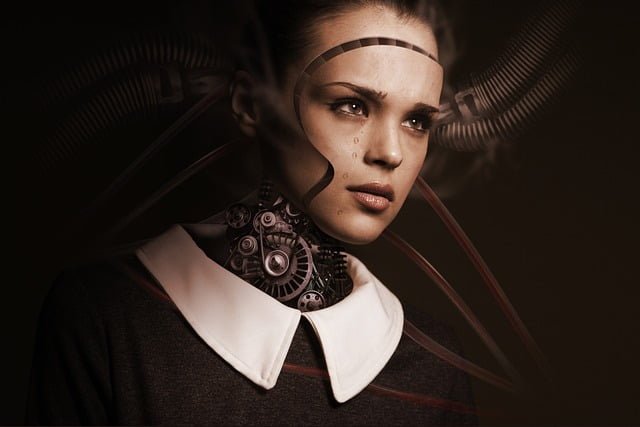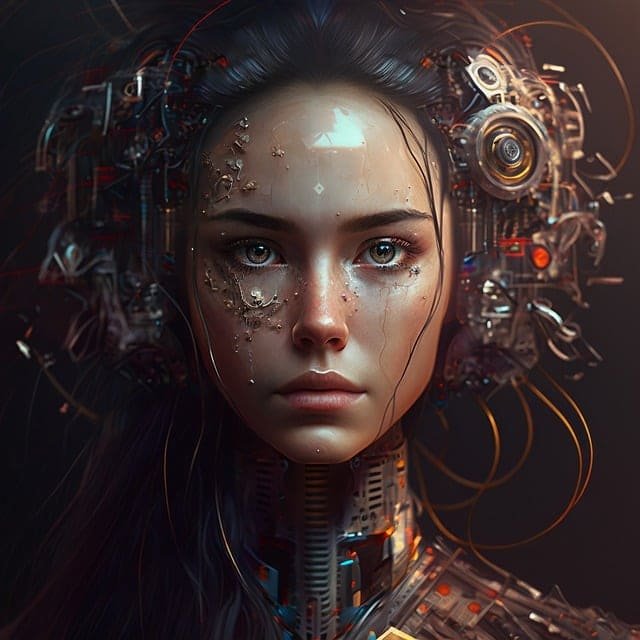Will AI reduce your Job Opportunities? : Know Everything about the Coming AI Revolution
AI is reshaping jobs, not replacing them.
The key is adaptation and upskilling for the workforce of tomorrow
Page Content
- 0.1 Is artificial intelligence leading to a jobless future?
- 0.2 Will AI replace jobs in 2025?
- 0.3 Which Jobs are in Danger of AI?
- 0.4 Which skill is best for 2030?
- 0.5 1. Understanding AI and Data
- 0.6 2. Problem Solving
- 0.7 3. Creativity
- 0.8 4. Emotional Intelligence
- 0.9 5. Teamwork
- 0.10 6. Lifelong Learning
- 0.11 7. Adaptability
- 0.12 My Opinion:
- 1 FAQ:
Is artificial intelligence leading to a jobless future?
AI or artificial intelligence is not just an emerging technology
but a revolutionary technology that can completey change the workings of many existing industies from top to bottom.
Whether it is healthcare secter, education sector, tech sector or even job markets around the globe.
The biggest advantage with ai is its effeciency and speed.
Human employees can take months to master a skill and report work inefficiency
but on the other side ai faces no such problems, which makes it the most attractive option for the employers.
Therefore, most experts hint at massive jobs layoff in the coming future in the tech and many other sectors, which will cause massive unemployement in the youth.
And in fact many tech giants like google, amazon and twitter have already started laying off their employes.
But the things are not all grim.
The good thing is AI will still need human help in many highly creative and analytical tasks that are difficult or needs human assistance.
This means, it will open new windows altogether for different types of jobs, resulting in loss of many existing jobs.
This kind of situation will require you to evolve, not only your with skillset but also your mindset and competency.
Self evolution in the age of AI won’t just be a skill but a do or die skill to survive.
Either you evolve or go extinct, just like The Darwin’s theory of evolution.
Will AI replace jobs in 2025?
AI is expected to change the job landscape significantly by 2025, but it’s unlikely to completely replace jobs across the board. Instead, here’s what we can anticipate:
- Job Transformation: Many jobs will be transformed rather than eliminated. AI can handle repetitive tasks, allowing workers to focus on more complex and creative aspects of their roles.
2. New Job Creation: While some roles may disappear, AI will also create new jobs in areas like AI management, data analysis, and technology maintenance.
3. Collaboration with AI: Workers will increasingly collaborate with AI tools, using them to enhance productivity and decision-making.
4. Skills Shift: There will be a greater emphasis on skills that AI cannot easily replicate, such as emotional intelligence, creativity, and critical thinking.
5. Sector Variation: The impact of AI will vary by industry. Fields like manufacturing and customer service may see more automation, while creative and strategic roles may be less affected.
Overall, while some jobs may be replaced or significantly altered, many opportunities will also emerge, requiring workers to adapt and learn new skills.n 2025?
Which Jobs are in Danger of AI?
1. Automation based jobs
AI softwares are very efficient in performing repetitive tasks
as they can follow pre-programmed instructions given to them tirelessly without ever getting tired.
Therefore, jobs that involve data entry, basic calculations, or standardized processes will be most susceptible to ai automation.
2. Manual and Repetitive Tasks
Machines equipped with AI will continuously operate without breaks, enhancing efficiency and minimizing downtime.
This efficiency will lead to job transformations where manual and repetitive tasks will be taken over by machines,
while humans will have to pivot to roles that involve supervision, quality control,
or complex problem-solving within the production pipeline.
3. Data Aanalysis
ai’s prowess in data analysis is unparalleled, it allows it to swiftly process vast datasets and identify patterns quickly.
jobs centered around routine data analysis and decision-making based on clear parameters will
definitely see automation as the capabilities of ai expands.
4. Online Assistance
AI-powered chatbots and virtual assistants in customer service sector
are specially designed to handle routine customer inquiries and tasks efficiently.
This not only provides customers with quick responses but also reduces the workload on human customer service representatives.
This will clearly reduce the need for human employees to manage the customer service work, resulting in increased automation in this sector.

Which skill is best for 2030?
1. Understanding AI and Data
In today’s job market, staying relevant is key, and many roles increasingly rely on AI and data analysis. By acquiring skills in these areas, you enhance your value to employers and differentiate yourself from other candidates. Employers are looking for individuals who can effectively collaborate with AI tools and make data-driven decisions.
Additionally, understanding AI can lead to improved efficiency in the workplace. AI can automate repetitive tasks, freeing up your time for more meaningful work that requires human creativity and judgment. This shift allows you to focus on high-impact tasks that drive innovation and growth within your organization.
2. Problem Solving
while AI can assist with data analysis and automate routine tasks, it cannot replace human judgment and creativity. Workers will need robust problem-solving abilities to interpret AI-generated insights and apply them to real-world situations. This collaboration between humans and AI will rely heavily on the unique problem-solving capabilities that only people possess.
The pace of change in technology and business practices will continue to accelerate, making adaptability crucial. Those who can think critically and solve problems will be better equipped to handle new situations and shifts in the job landscape. This adaptability will not only enhance individual performance but also contribute to overall organizational resilience.
3. Creativity
as AI and automation take over routine tasks, the demand for human creativity will grow even stronger. While machines can analyze data and perform repetitive functions with efficiency, they lack the ability to innovate and create. Roles that require creative thinking—such as in marketing, design, and product development—will become more prominent, as companies look for individuals who can bring originality and new perspectives to their work. This shift will not only enhance job opportunities in creative fields but will also encourage a culture of innovation across all sectors.
Furthermore, creativity is closely linked to problem-solving and adaptability. In a rapidly changing job market, the ability to devise innovative solutions to unexpected challenges will be invaluable.
4. Emotional Intelligence
As workplaces become more collaborative and diverse, the ability to understand and manage emotions—both your own and those of others—will enhance communication and teamwork. EI helps individuals navigate social complexities, build strong relationships, and foster a positive work environment. In a world where remote and hybrid work models are becoming more common, having strong emotional intelligence can significantly improve interactions among team members, leading to better cooperation and productivity.
5. Teamwork
As workplaces become more interconnected and collaborative, the ability to work effectively with others will be crucial for achieving common goals. Many projects will require input from individuals with diverse skill sets and perspectives, making teamwork vital for harnessing the strengths of each team member. This collaborative approach not only fosters innovation but also enhances problem-solving capabilities, as different viewpoints can lead to more creative solutions.
Moreover, the rise of remote and hybrid work models has transformed how teams operate. In this new landscape, effective communication and collaboration tools are necessary for maintaining strong connections among team members who may be geographically dispersed.
6. Lifelong Learning
7. Adaptability
My Opinion:
The key to adapting to the changing job market, especially AI technology, is to evolve fast.
If you observe and carefully understand any top personality in the world,
they all have one thing in common. Continuous learning and willingness to evolve with time.
People who can’t are often those with a fixed mindset,
who view change as a problem rather than an opportunity to evolve and upgrade themselves for future challenges.
All the tips given in this article are proven and effective.
So, start working now and
give me feedback about the tips, whether they worked for you or not.
So that I can improve my content and give you even better ideas next time.
FAQ:
Is AI a threat to future jobs?
AI poses a potential threat to certain jobs by automating routine tasks, but it can also create new opportunities and industries, depending on how it’s integrated into the workforce.
Will engineering be replaced by AI?AI is unlikely to fully replace engineering, but it will transform the field by automating certain tasks
and enhancing problem-solving capabilities, while human engineers will still be needed for creativity, critical thinking, and overseeing complex projects.
Which engineering is best for AI?Computer Engineering is often considered the best engineering discipline for AI, as it combines principles of electrical engineering
and computer science to develop hardware and software systems essential for building AI technologies.
What jobs will be gone by 2030?By 2030, jobs that are likely to be significantly reduced or eliminated include roles in data entry, telemarketing, assembly line work,
and some aspects of retail and customer service, primarily due to advancements in automation and artificial intelligence.





